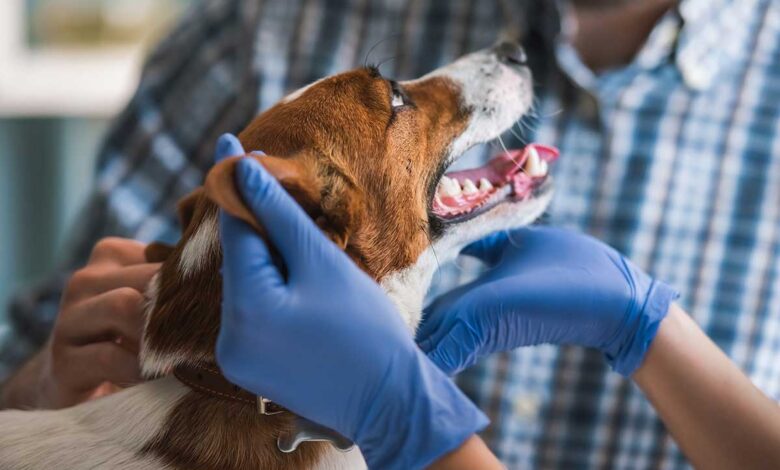The Importance of Preventive Care: How Regular Vet Visits Keep Pets Healthy
Pet owners can prevent many common health issues through regular vet visits, vaccinations, parasite control, and attention to dental and nutritional health.

Key Takeaways:
Preventive care is essential for maintaining your pet’s health and detecting potential health issues before they become serious. Regular veterinary visits are crucial in extending your pet’s lifespan and ensuring a high quality of life. Routine check-ups, vaccinations, and parasite control are fundamental aspects of preventive care.
Introduction
Pets bring joy and companionship into our lives, and it’s our responsibility to ensure they remain healthy and happy. Preventive care is a cornerstone of pet health, focusing on averting illness and issues before they arise. Pet owners can dramatically enhance their pet’s quality of life and longevity through regular veterinary visits and a comprehensive approach to wellness.
The Role of Preventive Care in Pet Health
Preventive care focuses on maintaining optimal health and detecting potential health issues early on. It involves a proactive approach to your pet’s health, focusing on routine examinations and preventive measures. The goal is to avoid severe illnesses by catching them in their early stages, ensuring swift and effective treatment. By establishing a schedule with your veterinarian for emergency care for dogs Houston TX, and routine check-ups, you take charge of your pet’s health comprehensively. Regular visits allow veterinarians to identify changes or symptoms that might go unnoticed by pet owners.
Components of Preventive Veterinary Care
Preventive veterinary care comprises various elements contributing to your pet’s overall health. These include regular physical exams, vaccinations, parasite control, and assessments of diet and behavior. These components work synergistically to maintain your pet’s health and prevent disease. Your pet’s overall condition is assessed during routine vet visits, including weight, coat health, and internal organs. Vaccinations protect against diseases, while parasite control prevents fleas, ticks, and worm infestations, which are critical to maintaining a pet’s well-being.
Importance of Regular Veterinary Visits
Scheduling regular veterinary visits is a key component of preventive care, providing an opportunity for early detection and intervention of health issues. Routine exams allow veterinarians to consistently monitor your pet’s health, establishing a baseline for future comparisons. This continuity of care enables veterinarians to detect trends or anomalies and adjust care accordingly. Moreover, these visits facilitate communication between pet owners and veterinarians, fostering collaboration in managing the pet’s health.
Vaccinations and Immunizations
Vaccinations are vital to preventive care, offering protection against various infectious diseases. These immunizations boost your pet’s immune system, equipping it to fight potential infections. Every pet has a customized vaccination schedule based on their species, age, lifestyle, and location. Routine vaccinations prevent the spreading of diseases like rabies, parvovirus, and feline leukemia, contributing to broader community health. Keeping up with your pet’s vaccination schedule is crucial for their safety and compliance with local regulations and traveling requirements.
Parasite Control and Management
Parasite infestations are a common yet significant threat to pet health. Fleas, ticks, and worms not only cause discomfort but can also transmit diseases. Parasite control is a fundamental aspect of preventive care, involving prevention, regular checks, and timely treatment if necessary. Pet owners can effectively manage these risks by using vet-recommended products, ensuring their pets remain parasite-free. Regular deworming, flea, and tick preventives and attentive grooming practices help minimize the risk of infestation. Continuous monitoring for signs of parasites, like scratching or visible discomfort, helps maintain your pet’s comfort and health.
Dental Health and Its Impact on Overall Well-being
Dental health often gets overshadowed, yet it plays a crucial role in a pet’s overall health. Poor dental hygiene can lead to pain, infection, and systemic issues as bacteria enter the bloodstream. Preventive care includes regular dental check-ups and cleanings to maintain oral health. Brushing your pet’s teeth, providing dental treats, and professional cleanings are integral to preventing dental diseases. Bad breath, difficulty chewing, and inflamed gums are signs that dental health needs attention. Ensuring your pet’s teeth and gums are healthy contributes to a longer, happier life without discomfort.
Nutrition and Weight Management
Proper nutrition is a foundation of good health, directly influencing a pet’s vitality, longevity, and disease resilience. Tailoring a diet plan to meet your pet’s needs is critical, considering their age, weight, activity level, and health status. Nutritional assessments during vet visits help formulate a balanced diet. Weight management is also crucial, as obesity can lead to a host of health issues, including diabetes and orthopedic problems. Pets enjoy enhanced energy levels and well-being by maintaining a healthy weight through proper diet and regular exercise.
Behavioral Assessments and Socialization
Behavioral health is a vital yet sometimes overlooked component of preventive care. Regular veterinary assessments can detect behavioral issues early, enabling timely intervention and correction. Socialization efforts, particularly for young pets, foster positive interactions with other animals and humans. Behavioral problems, such as aggression or anxiety, can impact a pet’s quality of life and relationship with their owners. Training, socialization activities, and behavioral therapy are avenues to address these issues. Encouraging positive behavior and understanding your pet’s needs leads to a more harmonious home environment and a happier pet.
Conclusion
Preventive care is more than a responsibility; it is a commitment to extending and enhancing your pet’s life. Pet owners can prevent many common health issues through regular vet visits, vaccinations, parasite control, and attention to dental and nutritional health. This proactive approach ensures that potential problems are caught early and interventions are more effective. Ultimately, preventive care means investing in a healthier, more joyful life for your pet. By prioritizing preventive care, pet owners fulfill their role in safeguarding their pets’ health and happiness.











